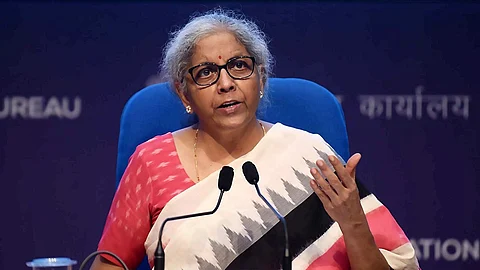On Saturday, Union Finance Minister Nirmala Sitharaman delivered the 2025-26 Union Budget in Parliament, marking her eighth consecutive presentation of the annual budget.
₹99,858.56 Crore Allocated to the Health Ministry:
A significant portion of the budget is dedicated to healthcare, with ₹99,858.56 Crore allocated to the Ministry of Health and Family Welfare. This amount represents a 191% increase since 2014-15, showcasing the government's strong commitment to improving the health and well-being of citizens. The Union Health Ministry shared this announcement, highlighting the progress made in healthcare funding over the years.
Expansion in Medical Education and Cancer Treatment:
The government has added 1.1 lakh medical undergraduate and postgraduate seats since 2014. Finance Minister Sitharaman announced that 10,000 additional medical seats will be introduced next year. The budget also includes plans to establish daycare cancer centers in all district hospitals over the next three years. To support cancer and rare disease patients, the government will fully exempt 36 life-saving drugs from customs duties, while six more will enjoy concessional customs duties.
Increased Support for Nutritional Programs:
The budget also addresses nutritional support for vulnerable populations, including children, pregnant women, lactating mothers, and adolescent girls. Programs like Saksham Anganwadi and Poshan 2.0, which already serve millions in aspirational and northeastern districts, will receive increased financial support to enhance the nutritional status of these groups.
Promoting Medical Tourism in India:
The government aims to position India as a global leader in medical tourism. By partnering with the private sector, the initiative seeks to attract international patients, creating economic opportunities and strengthening the healthcare and hospitality sectors. Medical tourism is expected to improve healthcare infrastructure, encourage investment in advanced technology, and enhance the quality of care available in India. This push also aims to boost the global reputation of India’s healthcare system, including the promotion of traditional treatments like Ayurveda.


